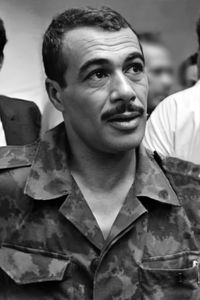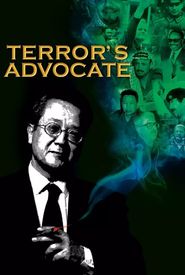Yacef Saâdi, a distinguished and celebrated figure in Algerian history, came into this world on January 20, 1928, marking the beginning of a life that would be filled with courage, conviction, and a relentless pursuit of freedom.
As a young man, Saâdi became deeply embroiled in the struggle for Algerian independence, throwing his hat into the ring, as it were, to join the National Liberation Front, a storied organization dedicated to ridding the country of the shackles of foreign oppression.
Throughout the tumultuous years of Algeria's war of independence, Saâdi proved himself to be a force to be reckoned with, playing a pivotal role in the National Liberation Front, and his unwavering commitment to the cause earned him a place among the pantheon of revered Algerian patriots.
Tragically, Saâdi's remarkable life came to a close on September 10, 2021, leaving behind a legacy that would be cherished and honored by generations to come.
Yacef's professional journey commenced with an apprenticeship in the art of baking, laying the foundation for a life of dedication and perseverance. His involvement with the Algerian People's Party (PPA) in 1945 marked the beginning of his foray into the world of politics, as he became increasingly invested in the party's ideals and principles. As his commitment to the cause deepened, Yacef's role evolved, and he eventually became an integral part of the Special Organization, the armed wing of the PPA, between 1947 and 1949.
Following the disbandment of the Special Organization, Yacef's path took an unexpected turn as he traveled to France, where he spent an indeterminate amount of time. The allure of his homeland, however, ultimately proved too great, and he returned to Algeria in 1952, rekindling his passion for baking in the historic Casbah district. As he resumed his work as a baker, Yacef's experiences and perspectives had been forever shaped by his time in the Special Organization, setting the stage for the pivotal role he would later play in the Algerian War of Independence.
In the year 1955, Yacef embarked on a journey that would forever change the course of his life, as he joined the prestigious ranks of the Front de Libération Nationale, or FLN, at the very beginning of the long and arduous struggle for independence.
As fate would have it, Yacef's involvement with the FLN did not go unnoticed, and he was soon arrested by the French police in the charming town of Orly, a place known for its rich history and cultural heritage.
Following his arrest, Yacef was imprisoned in the bustling city of Algiers, a metropolis that was to become a hotbed of revolutionary activity and a symbol of the Algerian struggle for independence.
However, Yacef's imprisonment was to be short-lived, as he was released from custody in September of the same year, but not before being granted a conditional release, the terms of which required him to inform the Direction de la Surveillance du Territoire, or DST, about the activities of the FLN in the city of Algiers.
Undeterred by the terms of his release, Yacef went underground, determined to continue his work with the FLN, and it was during this period that he rose to prominence within the organization, becoming the trusted right-hand man of the leader of the FLN for the military zone of Algiers, the revered Larbi Ben Mhidi.
Abdelkader Yacef rose to prominence as the military leader of the autonomous zone of Algiers in May 1956, succeeding Ben Mhidi who tragically met his untimely demise in March 1957. As the new leader, Yacef continued to spearhead the Algerian struggle for independence from French colonial rule.
However, his leadership was short-lived as he was captured by French paratroopers on September 24, 1957, and subsequently sentenced to death. Yet, fate intervened, and Yacef was released after the signing of the Evian Accords on March 18, 1962, which marked the end of the Algerian War of Independence.
In a surprising turn of events, Yacef was granted a pardon by General de Gaulle in January 1959, along with all those condemned to death in Algeria, effectively putting an end to his ordeal.
After his release from confinement, Yacef went on to establish a film production company, aptly named Casbah Films, which he successfully financed through a combination of Algerian and Yugoslav capital investments.
In the following years, Yacef published his memoirs, titled "Memories of the Battle of Algiers", in 1962, offering a firsthand account of his experiences during the tumultuous period.
Notably, in July 1963, Yacef was appointed as the president of the National Center for Friendship with Peoples (CNAP),a prestigious organization aimed at showcasing abroad the remarkable achievements of Algerian socialism, thereby fostering greater international understanding and cooperation.
Saâdi Yacef's professional endeavors in the world of cinema were marked by a significant collaboration in 1966, when he co-produced the renowned film "The Battle of Algiers" alongside Italian director Gillo Pontecorvo. Notably, Yacef made a memorable appearance in the film, playing a role based on his own persona.
In addition to his accomplishments in the film industry, Yacef's passion for sports led him to take on a leadership role in the Algerian club USM Alger. He served as the club's president from 1972 to 1975, dedicating three years to the development and success of the team.
Later in his career, Yacef received a prestigious appointment from President Bouteflika, being named a senator on January 6, 2001. This honor was part of a larger package of 29 appointments reserved for the President, solidifying Yacef's position as a respected and influential figure in Algerian politics.





















